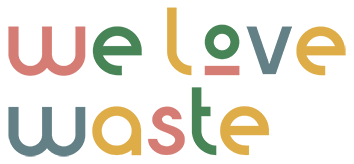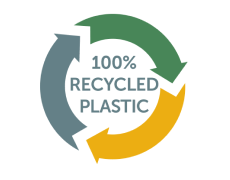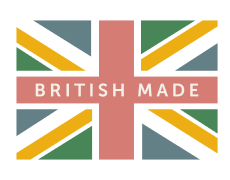ReBorn's Founder and CEO, Brian Walmsley, talks about his journey, gives advice for sustainable businesses and how Virgin Start Up program has helped him bring his vision to life.
Virgin 'Change Makers' Start-Up Event, Founder Interview Series: Part 2 of 7
In this honest and insightful interview at a recent Virgin Start-Up event Brian Walmsley, founder and CEO of ReBorn Homeware, talked about his personal and professional motivations and the idea that started it all.
In this second episode, Brian is discussing the entrepreneur's journey, advice for sustainable business and how Virgin's Start Up accelerator has supported him. With host Nathalie Pearce asking the questions, she and Brian start from the very beginning and cover:
- Entrepreneurial Journey:
- Previous experience in starting three businesses, including a fair-trade business and a homewares brand.
- Challenges faced in trying to bring sustainability into large corporate structures.
- Decision to Go Solo:
- Frustration with the limitations of implementing sustainability within large corporations.
- Comparison of starting a sustainable business from scratch versus re-engineering existing businesses.
- Advice for Sustainable Businesses:
- The challenge of linking sustainability visions to execution in large corporations.
- Framing sustainability in terms of consumer benefit language.
- Highlighting the importance of incorporating sustainability into the business model.
- Involvement in Programs (Virgin StartUp and Collective Impact):
- Lack of funding as a significant challenge.
- Impact and support received from participating in Virgin StartUp and Collective Impact programs.
- Connection with Holly Branson and the role of the Virgin StartUp program in securing initial investment.
Q; Was there anything in your journey that set you up for an entrepreneurial role or was it more out of necessity? In other words, no one's solving this problem, I'm going to have to solve it myself. What did that journey look like for you?
I’m very driven because of my upbringing and I had started three businesses before.
I did a student magazine which wasn’t very successful. I'd worked in Tanzania and then came back and set up a fair-trade business called ‘Good Fair Gifts’ which was medium successful. Then I set up the EKO homewares brand in the UK, a few years ago.
I did these other things that led me to know a little bit about how to start a business and that helped. But it was the fact that I couldn't change large businesses from within. I remember talking about sustainability in larger corporates and it was quite hard to get things through, it was dismissed as either more expensive to make things happen within large corporates or too difficult to re-engineer businesses, which is similar to saying: ‘it costs’.
So, it’s almost, in a strange way, easier to do a sustainable business from scratch sometimes than to try and re-engineer existing business. So that was another catalyst.
I imagine that the experience of trying to change a big organisation from within and not getting anywhere is quite a relatable story, especially for entrepreneurs?
I always think that the best businesses come out of frustration of ‘I’m just going to have to do this myself because no one else is doing it’. Maybe they're in a big organisation. They want to see this change, but they're frustrated that they're not seeing it and they have an inkling maybe they could do this, but they're not sure.
If there’s any kind of advice or tips that I would give for sustainability, specifically, I think it would be around two things. One, I think, is that at the senior level in most companies now, most get that sustainability is important. What they can't do is kind of link that lofty vision through to execution. So, I think there are some brands that are trying to, like M&S, who were ahead of the curve with Plan B. So, it's linking the executional stuff through to the big picture. I think that’s number one.
I think the other thing about sustainability particularly, is to frame it in terms of the consumer benefit. I think sustainability can be a bit far removed from people's day-to-day pressures of ‘I just want it to be nice to look at, or I just want it to work, or I just want it to be cheap'. We have to face it, those are the primary drivers for people. So, you have to be able to frame sustainability in clear terms.
Giving an example, John Lewis, my biggest customer, they've done this thing called the ‘beauty cycle’ program. You can walk into John Lewis with five empty bottles of anything from Beauty and then you get given back five pounds off a new product in John Lewis.
So, it’s just that idea of rather than just telling everyone, ‘Look you can recycle here’ actually showing consumers there is something in it for them. I just like that idea of taking consumers with you on the journey and linking it to big strategy and then giving consumers something for it.
I want to ask a couple more questions around your origin story. I'd love to hear a bit about why you chose to go on the Virgin start-up one and how they supported your early journey in starting ReBorn?
Virgin start-ups was the game changer for me, because prior to that I was that little swan that I was talking about earlier, where John Lewis is there saying ‘we are launching this next year, right?’ and I was like, yes, of course we are.
I had literally no way of funding it. I had some of the pieces of the puzzle. I was working with Brunel University on the material science side, I had won an Innovate UK grant with them. And they were also helping with the lifecycle analysis to prove the carbon impact, to help understand what was the genuine sustainability impact, because there's a science to it and I'm not a scientist by trade. So, working with Brunel was important. I had that in place but I had no real significant funding. I did have a product designer on board, he’s amazing. I did have the brand team on board. So funding was probably actually, the single biggest thing I didn't have. I had most other bits of the puzzle.
So, I hadn't heard of Virgin start-up but a friend of mine recommended it to me. That was the game changer. Then I was lucky enough to meet Holly Branson through that program and pitch to many others in the program. She made the decision to invest directly into ReBorn homewares. That was a catalyst. That was a catalyst for then telling everyone else ‘Hey, the Branson family are in. Are you interested?’ And then that was the knock on for other people to get involved with ReBorn homewares too.
Join us for the next episode where Brian will be discussing how the brand name ReBorn came along, and how he's building a business balancing Purpose, Planet, and Profit.
About ReBorn®
Imagine a world without waste; a world where any waste can be turned into useful and stylish products. This is why ReBorn® Homewares was created bringing this vision to reality. ReBorn is dedicated to creating stylish, functional and planet-friendly homeware, with all products in the range made in the UK from recycled materials and ‘circular by design’.



